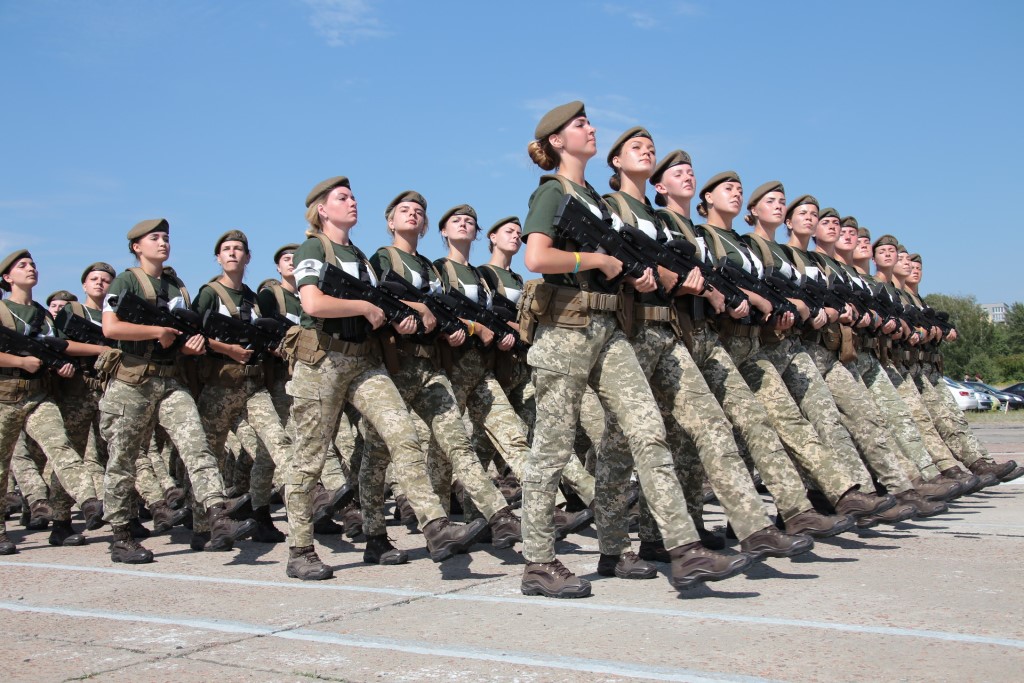According to the Ukrainian General Staff, the reserve system reforms introduce a number of key changes (Army Inform, April 22):
- Help reduce the time needed to reinforce the Ukrainian Armed Forces (UAF) and other military formations since reservists will now be able to be called up without the declaration of an official mobilization;
- Improve the existing reserve system through the implementation of a new automated personnel accounting system, “Oberih”;
- Establish a new type of service—reservists who can be called up during a so-called “special period” declared by the commander-in-chief of the UAF; and
- Create new social benefits for reservists, most of which would be similar to the benefits enjoyed by contract soldiers.
Oleksandr Zavitnevitch, who heads the Rada National Security, Defense and Intelligence Committee, noted earlier that only experienced personnel (such as veterans of the war in Donbas and former conscript service soldiers) will be included in the reserve, to be called the Operative Reserve-1 (OR-1) (Interfax, April 21).
As expected, the new law has sparked its share of disinformation, such as erroneous claims that the duration of conscript military service would change (Facebook.com/GeneralStaff.ua, April 21). But more importantly, the legislation kicked off debate among military experts and veterans, some of whom see the changes as a deterioration of existing conditions, a step away from North Atlantic Treaty Organization (NATO) standards, or simply unfair to veterans. For example, while Ihor Koziy, a Ukrainian military analyst, sees the now-easier mobilization of reservists as an acceptable option, he at the same time argues that this category of citizens has already done much to defend the country and now could risk being exploited. Most experts think the main hazard of the new law is that it may be abused to legitimate call-ups of unlimited duration or frequency, which would come to resemble the old Soviet-style mandatory service system (Ukrinform, April 27).
Additionally, Oksana Filonenko, the CEO of the non-governmental organization (NGO) Free People Employment Center, stressed that this kind of mechanism could negatively affect the rehabilitation process for veterans. In turn, Kristina Gerasimchuk, of the Law Firm Tihishvili, believes, that after this change, employers may not want to hire reservists, because at any moment they could be called-up into the army (Ukrinform, April 27).
Addressing such concerns, Maryana Bezugla, a Rada deputy from the Servant of the People party and the deputy head of the National Security, Defense and Intelligence Committee, stressed that the newly adopted rules easing reserve call-ups represent a safeguard for special conditions, like when the parliament is not functioning. One of the original co-authors of the reserve reform law, Bezugla hopes that there will be no need for the president to have to make use of this new norm (Ukraina Moloda, April 13).
In an exclusive interview (May 1) with this author, Myroslav Hai, the deputy head of the Reservists Council at the Ukrainian Armed Forces (UAF), revealed that work on the draft bill that was eventually signed into law last month actually started in early 2018. According to Hai, the Ukrainian General Staff assumed the Russian Armed Forces would achieve maximum planned operability and readiness by 2020–2021, at that point giving them the ability to conduct rapid attack operations against Ukraine. Of particular concern in this context were Russia’s newest strike units, formed since 2014 near the Ukrainian border. Speed and efficiency of mobilization on the Ukrainian side would thus be a factor in potentially deterring such Russian armed offensives or, if they could not be prevented, determining their outcome.
Those fears within the Ukrainian General Staff were partly confirmed in March–April of this year, with the showy deployments of, reportedly, over 100,000 Russian troops and heavy equipment close to Ukraine’s borders and in occupied Crimea. To prepare against a full-scale invasion, Ukraine would need to call-up large numbers of well-trained soldiers as fast as possible. But according to the preexisting laws (that is, prior to the adoption of the new reserve law), only the Verkhovna Rada could officially start mobilization. Under the current political conditions in Ukraine, this could prove almost impossible, Hai argued. In such a situation of looming war with Russia, it would be extremely difficult to rapidly gather all members of parliament together for a vote as well as avoid potential provocations from domestic pro-Russian parties (which might attempt to block voting, leak secret sensitive information, and so on) (Author’s interview, May 1).
Also, Hai noted, under the previous legislation, upon mobilization all new soldiers (without military experience) would be mandated to undergo basic training for 60 days before being allowed to join their military units (reduced to 30 days under an experimental enhanced program). Yet if Russia were to launch a full-scale conventional attack, it might do so via quick naval landings and airborne operations as opposed to a slower-moving overland invasion (Defence Express, April 17). Such penetrations from the sea and air could last only a few days and leave Ukrainian units without reinforcements and reserves. The new reserve law was, thus, proposed in 2018 explicitly to avoid such a situation, allowing experienced reservists to fill the positions of killed or wounded soldiers from the outset of a new war. That could give Ukraine more time to start a general mobilization process, secure international support and organize the defense of the country.
Read More:
- Escalation around Donbas: Is the Ukrainian army prepared for full-scale Russian aggression?
- Ukraine’s Territorial Defense volunteers prepare to support army in case of Russian invasion
- While President Zelenskyy promises peace, Ukraine’s Army faces serious challenges
- Threat of major Russian military operation against Ukraine and West hasn’t disappeared, Felgengauer says
- “Poke-and-probe.” Why Russia is massing troops & military hardware along Ukraine border
- Ukrainians fear Moscow may use their co-ethnics in Russia in provocation to restart war
- Putin may have pulled back from Ukraine border but he did not back down, experts warn





